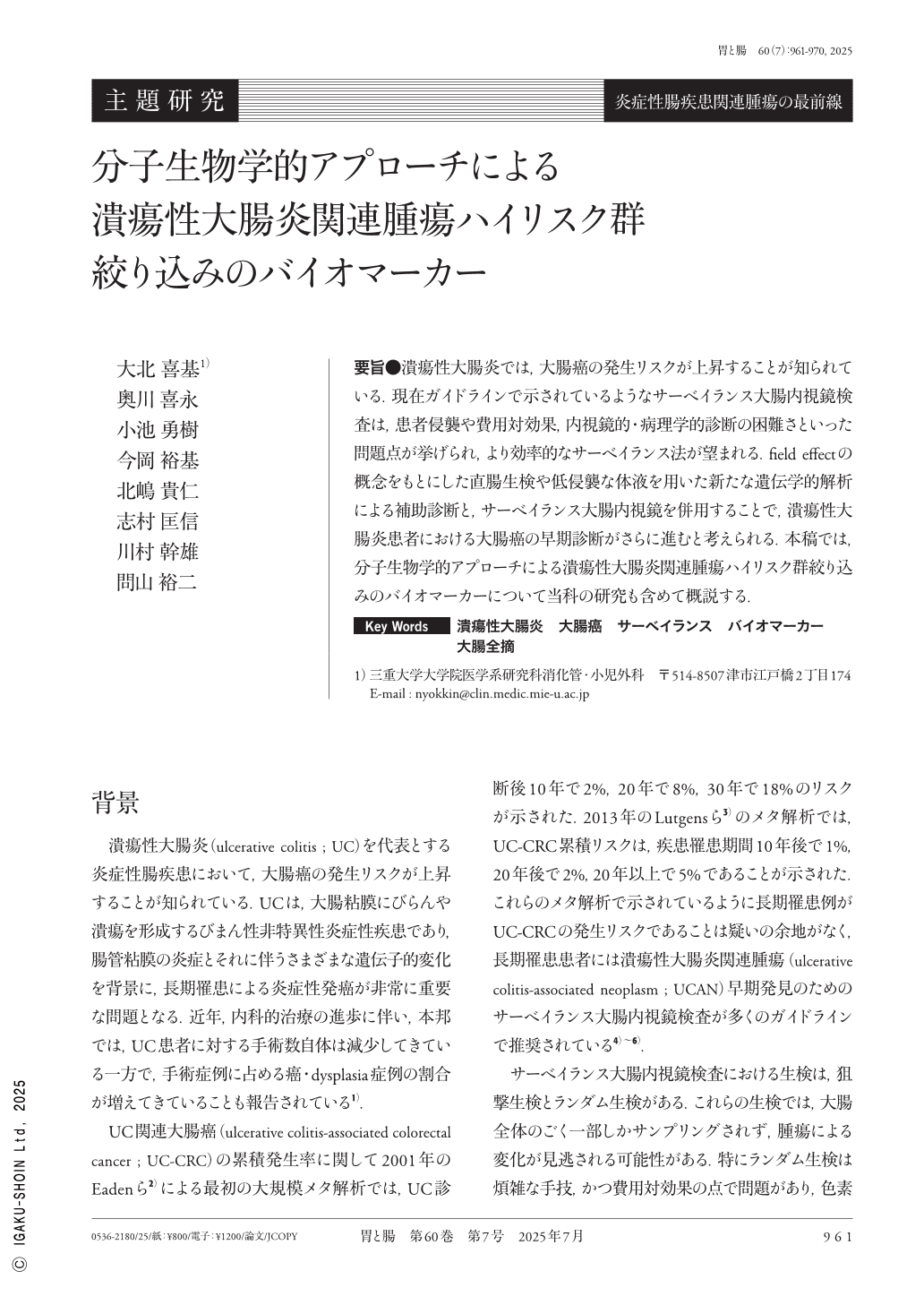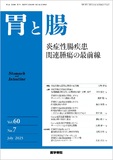Japanese
English
- 有料閲覧
- Abstract 文献概要
- 1ページ目 Look Inside
- 参考文献 Reference
要旨●潰瘍性大腸炎では,大腸癌の発生リスクが上昇することが知られている.現在ガイドラインで示されているようなサーベイランス大腸内視鏡検査は,患者侵襲や費用対効果,内視鏡的・病理学的診断の困難さといった問題点が挙げられ,より効率的なサーベイランス法が望まれる.field effectの概念をもとにした直腸生検や低侵襲な体液を用いた新たな遺伝学的解析による補助診断と,サーベイランス大腸内視鏡を併用することで,潰瘍性大腸炎患者における大腸癌の早期診断がさらに進むと考えられる.本稿では,分子生物学的アプローチによる潰瘍性大腸炎関連腫瘍ハイリスク群絞り込みのバイオマーカーについて当科の研究も含めて概説する.
Ulcerative colitis has been identified as a risk factor for the development of colorectal cancer. The current guidelines recommend surveillance colonoscopy for this purpose, albeit this approach has several drawbacks, such as patient burden, cost-effectiveness, and challenges in endoscopic and pathological diagnosis. Thus, more efficient surveillance methods are required. Surveillance colonoscopy combined with adjunctive diagnostic techniques, such as genetic analysis, holds promise for improving the early detection of colorectal cancer in patients with ulcerative colitis. Here, we have reviewed biomarkers for identifying high-risk groups of ulcerative colitis-associated neoplasia by using a molecular biological approach and discussed our research findings in this direction.

Copyright © 2025, Igaku-Shoin Ltd. All rights reserved.


